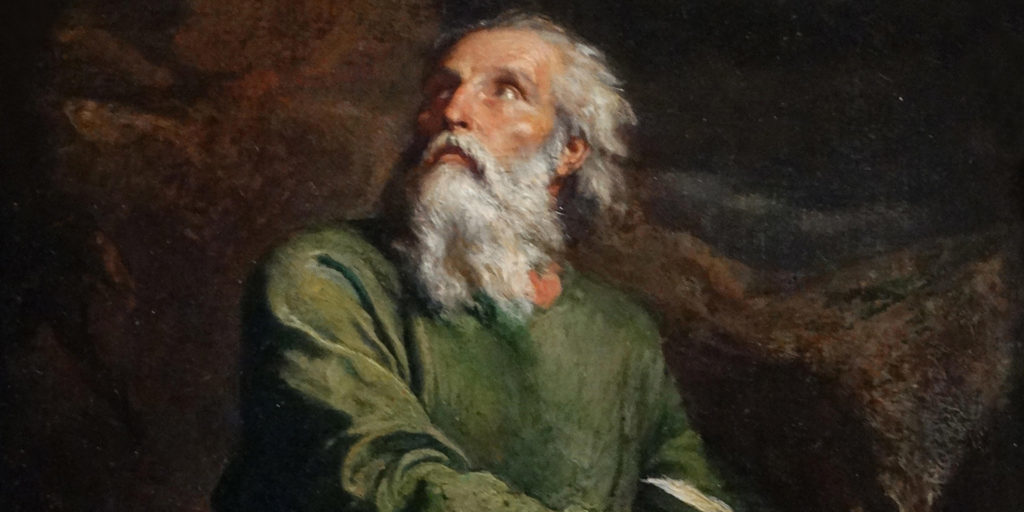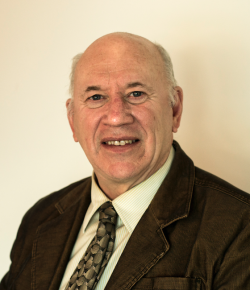
How to Read Isaiah Theologically: Part One
Imagine for a minute a young man going to the temple court in Jerusalem sometime around 740 BC. The nation’s king, Uzziah, has just died after a long, illustrious and prosperous reign.[1] The news has struck like a lightning bolt, with the nation in a particularly vulnerable state. To the northeast the Assyrian empire has been flexing its muscles, and within a generation, the northern kingdom of Israel would fall like a domino before its relentless aggression. In a word, the geo-political foundation of the near east was about to experience an earthquake.
So, Isaiah, a young man, with aristocratic pedigree, went to the temple to pray and has a terrifying vision, which leaves a deep imprint on his entire subsequent life. For here, he received his call to be a prophet, a spokesperson for God, and like every prophet’s calling, his was unique. But this vision was literally the signature for the content of his message, for to know this vision is to know the essential message of his prophecies. To understand this vision is to understand the theology of Isaiah.
The Vision of Isaiah
The vision shocked and shook the young Isaiah from top to bottom. The first object Isaiah sees in his vision is God himself. He simply says, “I saw the Lord seated on his throne, high and lifted up.” Isaiah may be at the entrance to the temple proper which was divided into three partitions: a vestibule, the temple proper (i.e. the holy place which contained a table of showbread, a candlestick or menorah, and an altar of incense), and a third space, the holy of holies, where the ark of covenant was placed as well as the cherubim which guarded the divine glory from intruders. The ark of the covenant was regarded as the footstool of the invisible throne of God. But in this vision the Lord becomes visible towering above the temple, looming over everyone and everything.
The fact that Isaiah sees the Lord would be enough to astound any Israelite, and they would sense the danger, as repeatedly in the Old Testament narrative, for a human being to come into close contact with God, meant trouble.[2] One could hear him, but rarely see him without that registering a dramatic impact. But the fact that the Lord is “high and lifted up seated on the throne” becomes a signal theme of Isaiah’s theology. God is the absolute sovereign king. He is the one repeatedly identified as “the Lord of Hosts,”—i.e. the commander of the heavenly armies. The Assyrians had the largest army the ancient world had ever known, but the Lord of Hosts, the King with his spiritual armies, towers above such puny forces. In fact, the King is the only one who is exalted, and this is a rebuke to all forms of idolatry.
One of the problems of idolatry is it exalts that which is mere matter, and debases the Creator. It is thus a distortion of reality. It is no wonder that when Isaiah is commissioned as a prophet the theme of his preaching will be that there is a coming a day when everything high will be made low, whether they be the cedars of Lebanon, high fortified walls, massive ships, high mountains, or all human pride, so that Yahweh will alone be exalted![3] Yahweh cannot be compared to any material power—He is Spirit in comparison to mere flesh,[4] He is the creator of the ends of the earth, before whom all the nations are but dust in a bucket. He sits enthroned in such a way that all the inhabitants of the earth are like grasshoppers.[5]
Yahweh, the King
The King’s robe also catches the young Isaiah’s eye: it’s train drapes down to the floor around the ark, and flows out from there until it fills the entire temple. Long, flowing trains in the ancient world were a sign of majesty and glory, but no human king would have such a magnificent train, which would be incredibly impractical as well. But practicality is not the issue here. How does one describe the transcendence of God’s kingship? It cannot be compared to that of any king.
Divine attendants named Seraphim, add to this scene, burning with radiance. They were winged serpentine creatures, with ominous overtones.[6] They were flying above the King, each having six wings. Significantly these creatures which were probably charged with protecting the Deity only use one set of wings for flying, and the other two sets for protecting themselves from the divine glory. They do not protect the deity. They need protection! How does one describe the transcendence of God’s kingship? It cannot be compared to that of any king. Click To Tweet
But the description of these seraphim quickly moves to their response to the king. They chant repeatedly the word: “Holy! Holy! Holy!” They direct their praise to the Lord God of Hosts. They continue: “The fullness of the entire earth is his glory! “The seraphim’s response emphasizes, reiterates and expands on what Isaiah has already seen. The high and exalted King, the train of whose robe fills the temple, is the high and exalted one over the whole earth, and his glory floods the universe. Clearly the prophet’s view of God in the temple is a microcosm for God’s kingship over the cosmos. Thus, this vision, real as it is, becomes a preview for God’s intention for the whole earth. This will happen as later Isaiah prophecies a day when the knowledge of the Lord will cover the earth as the waters cover the earth,[7] where there will be no more war,[8] and nothing will hurt and destroy in his holy mountain.[9]
Yahweh, the Holy One
The word “Holy” is a word which will also dominate Isaiah’s theology. Isaiah will call God “the Holy One of Israel.” This epithet is virtually unique to Isaiah as it occurs 26 times in his prophecies.[10] The word “Holy” is repeated 3 times in the text probably to indicate the superlative, the most Holy One. Holiness is a concept about which there is some debate in biblical scholarship, some suggesting that it stresses separation, that God is in a totally separate category altogether as the totally transcendent One, and others emphasizing that it is a positive quality, stressing the unique “godness” of God. This of course leads to the consequence of separation from everything else, but the concept of separation is derivative.
But this begs the question, What is the godness of God? How is transcendence expressed? For Isaiah it is manifested in righteousness and justice. In the previous chapter in Isaiah 5 there is a passage which clearly shows this: “the LORD of hosts is exalted in justice, and the Holy God shows himself holy in righteousness.”[11] Exaltation and holiness are paired but are combined with righteousness and justice, which is a shorthand phrase for the divine will, expressed in the correct ordering of society. Thus, it is no accident that these qualities are important throughout the book of Isaiah. God’s desire for his people and for the world is holiness. It was God’s desire that his servant Israel produce justice and righteousness. The vision of the future is a world filled with righteousness and justice, where even nature is transformed, and predators and prey will be at peace.[12]
But there is one problem. Up to this point Isaiah has been simply an observer but he suddenly becomes a participant. With the sound of each thunderous chant of the Seraphim, even the doorposts of the temple shake, and the place is filled with the smoke of incense burning on the incense altar. The whole scene seems eerie and otherworldly, but this is not what scares the young man. He cannot join with the Seraphim in the praise of God because of a profound impediment. His lips are impure, and the nations’ lips are defiled. He sees himself and his nation in a new light because he has seen the King, the Lord of Hosts! The holiness of God makes him acutely conscious of his sin, and he cries out literally, “Woe is me! I am destroyed!” His first prophecy is one of judgment—to himself!
*This is part one of a two-part series.
Endnotes
[1] Is 6.
[2] See e.g. Exod 33:20.
[3] Cf. Is 2:6-22.
[4] Is 31:3.
[5] Is 40:12-31.
[6] Cf. Num 21:6-8, Is 14:29, 30:6.
[7] Is 11:9
[8] Is 2:1-5
[9] Is 11:19, 66:25
[10] Twelve times in chapters 1-39, 14 times in 40-66.
[11] Is 5:18 (ESV).
[12] Is 2:1-5, 9:1-6; 11:1-9, 56:1-5, 56:1-12, 58:1-14.

